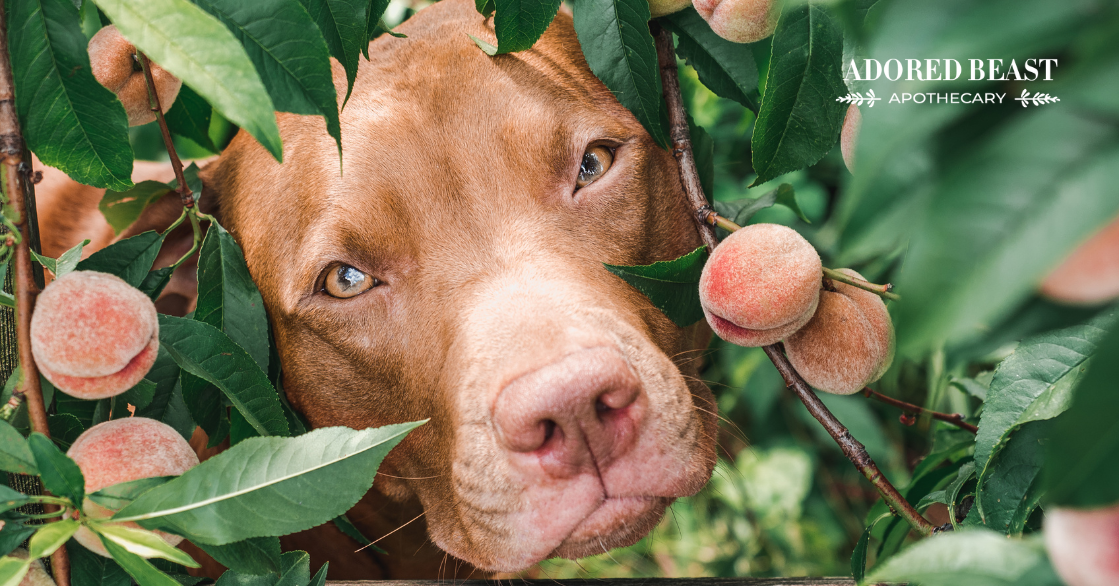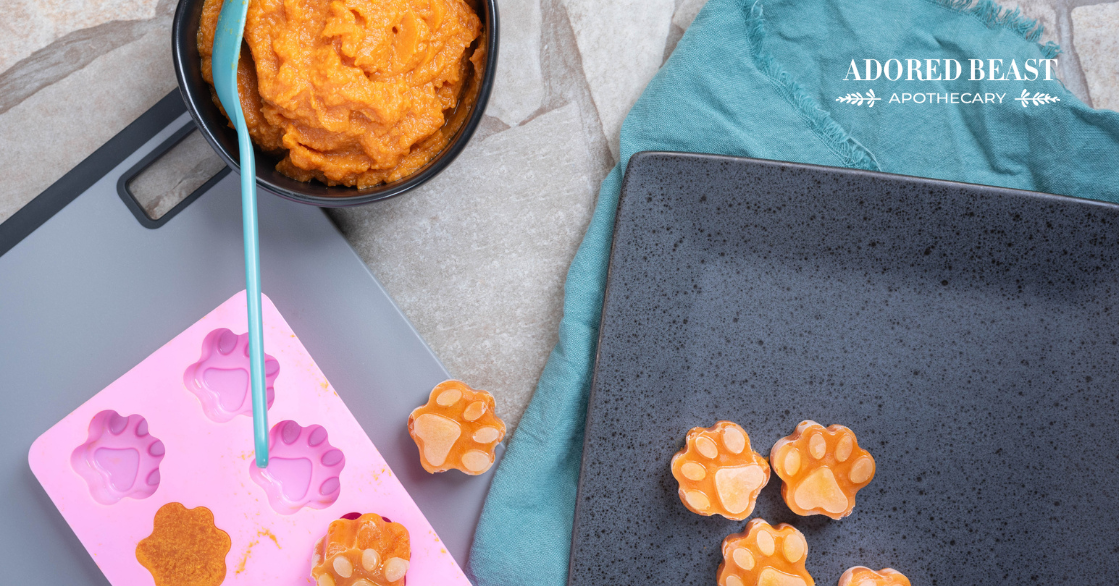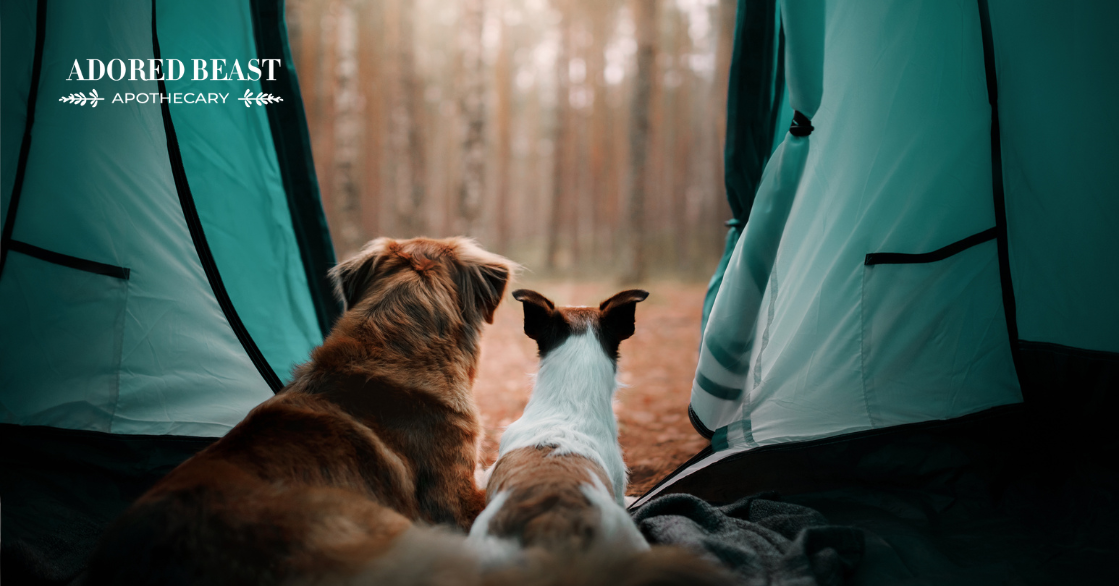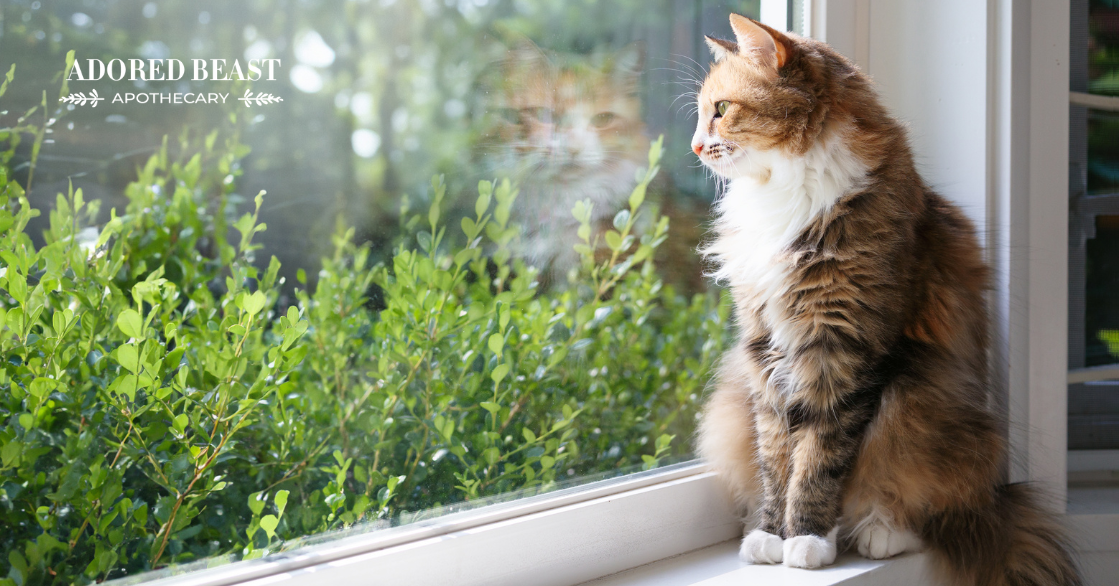These are interesting times we’re living in.
It’s very important for us to take care of ourselves as well as our pets, and while we might focus on our animals’ health for the everyday, right now it’s just as important to focus on our own health as well.
Our animals depend on us. We need to be taking care of ourselves so we can continue taking care of them!
We’ve gathered up list of things you can to to help you keep yourself healthy and sane, for the sake of your whole family – both two legged and four!
**Please note, this is not a replacement for the very important information you’re already receiving about washing your hands, not touching your face, and practicing social distancing and self-isolation. Right now, those things are crucial. This is in addition to those things. Keep them up!!
Earlier this week, Julie sat down with her friend Emily from Source CBD. They got chatting about some of the questions Emily had been getting from their community, and Julie thought it was the perfect time to share her thoughts with all of you! Check it out:
Questions about Coronavirus and Pets
Now, some of you might be wondering how coronavirus affects your animals, if at all, or if there’s any way to protect them against the virus. This is important info for all pet owners!
Can my pet become infected with COVID-19?
Currently, there is no evidence that pets can become sick with the virus. Infectious disease experts, as well as the Centers for Disease Control and Prevention (CDC), the World Health Organization (WHO), and the World Organisation for Animal Health (OIE) have all indicated that there is no evidence to suggest that our pets can be a source of infection, including spreading COVID-19 to people.
Should I stop petting my dog?
I’ve heard this, and every time I do my heart hurts. Your animal is your greatest connection to nature. They’re the greatest source of grounding. Instead of distancing yourself, spend as much time with them as humanly possible. Snuggle, go for a walk in the woods, play fetch, roll around on the floor. DO NOT isolate yourself from them or them from you.
Should my dog get the Canine Coronavirus Vaccine?
No. No. No. One more time for good measure – NO!
The canine coronavirus vaccines available are intended to protect against enteric coronavirus infection and are NOT licensed for protection against respiratory infections. In fact, they’re not even indicated for this virus, so they’re not going to help.
Your veterinarian should NOT be using such vaccines for the current outbreak. There is absolutely no evidence that vaccinating dogs will provide cross-protection against the infection by COVID-19.
Should I wash my hands after petting my dog?
Washing your hands is a major piece of advice we’re hearing 50 times a day right now, but if your dog is at home with you, practising social distancing alongside you, don’t worry. That said, if it makes you more comfortable, if your dog has been around someone who is sick, or if you’re unsure, wash away!
Should I stop others from petting my dog?
While we recommend petting your own dog as much as possible right now, try not to let others pet them. Experts still don’t know as much as they’d like about the virus, but what they do know is that it can stay on certain surfaces for a long time, and that may include your pet’s fur. So, limit that loving to household members only.
Pet Your Dog. It’s Great for Your Immune System!
Earlier I mentioned that petting your dog is one of the best things you can do right now. Here’s why!!
Oxytocin has been called the “love drug,” “the feel good hormone,” and “the trust hormone.” It’s been classed as the “most amazing molecule in the world,” but what it really is is a neuropeptide that inhibits stress-induced activity of the hypothalamic-pituitaryadrenal axis and is increasingly becoming recognized for its role in bonding, socialization, and stress relief.
And now we know it regulates the immune system!!!!
This hormone has the ability to decrease cortisol (the stress hormone) and blood pressure, decrease inflammation and pain, and it is used to treat anxiety, post-traumatic stress, depression and debilitating shyness. Now extensive medical research is looking into its role in cancer prevention and even treatment! Naturally, oxytocin is produced through the gaze, such as with a mother has with her infant or sexual partners in monogamous species. This gaze interaction, or loop, stimulates the production of oxytocin in the body.
A study has proven that the oxytocin-mediated positive loop that exists between the gaze of a mother and an infant is very similar to the one between humans and their dogs! This study shows that oxytocin levels are increased in both humans and dogs, which leads to all those great benefits above – the stress-relief, the immune boost, etc.
Study: Miho Nagasawa et al, “Oxytocin-gaze positive loop and the coevolution of human-dog bonds,” Science (2015).
Foods to Boost Immunity
There are lots of different things you can eat that are going to help boost your immune system.
We’re sure you’ve already got a laundry list going… but just in case you don’t, here are some of the things Julie is forcing (with love 😉 ) the Adored Beast team to eat (stuff she’s making sure to get lots of herself).
Now, one note before we start: there are lots of things on the list, BUT you don’t have to add them all. And, you don’t need to rush out to the healthfood store to buy every one. Pick ones you like or ones that you already have in the fridge or pantry! Don’t put any added pressure on yourself.
Quercetin
Research shows us that quercetin is a powerful immune booster and broad-spectrum anti-viral. A derivative of quercetin has been shown to provide broad-spectrum protection against a wide range of viruses, including SARS. Canadian and Chinese researchers are now collaborating on a study to assess the effectiveness of quercetin against COVID-19 infection.
If you’re a taking a supplement, the recommended daily dose is 500mg/day.
Foods containing quercetin:
- leafy vegetables
- broccoli
- grapes
- red onions
- peppers
- apples
- red wine
- black and green tea
Vitamin D
Vitamin D is an important component in the prevention and treatment of influenza and upper respiratory tract infections. It strengthens immune function, thus allowing your body to fight the virus more effectively.
Upping your own intake of vitamin D is easily done by eating certain foods:
- fatty fish: sardines, herring
- cod liver oil
- canned tuna
- egg yolks
- mushrooms
- milk
Pre & Probiotics
Probiotics are friendly bacteria that help support a healthy gut. Prebiotics help those probiotics grow and flourish. Since the vast majority of your immune system resides in the gut, it only makes sense that, in times like this, you want to keep that bad boy healthy!! If you’re looking for a supplement, try to get as many species/strains as possible.
Look for a minimum of 10 billion CFUs, shelf-stable, and look for an added prebiotic. A combo of both is essential.
Food sources of probiotics:
- yogurt
- kefir
- kombucha
- kimchi
- sauerkraut
Food sources of prebiotics (go easy – eat small amounts or they can cause bad gas and bloating…):
- onions
- garlic
- leeks
- asparagus
- dandelion root
- bananas
- chicory
- jerusalem artichoke
- burdock root
Garlic
Garlic has actually been specifically studied for strains of the coronavirus. Garlic contains compounds that help the immune system fight germs, and the compounds in garlic have been shown to boost the disease-fighting response of some types of white blood cells in the body when they encounter viruses. This research comes out of the Mashhad University of Medical Sciences!
Even if you just use garlic to prevent bacterial infections, secondary to coronavirus immunosuppression, or as an expectorant, it may provide significant value.
Amino Acids
Amino acids are organic compounds that combine to form proteins. Along with proteins, amino acids are literally the building blocks of life. Your body uses them to make proteins to help the body do things like break down food and repair tissue. There are 21 different amino acids, but 9 of them can’t be made by your body – so you have to add them to your diet.
The best sources of essential amino acids are animal proteins like meat, eggs and poultry. Phytoplankton is also a really good source of amino acids.
Medicinal Mushrooms
Mushroom extracts like reishi, maitake, shiitake, turkey tail, and cordyceps all have amazing immune-supporting properties. Research shows that the beta glucans in mushrooms up-regulate the function of the part of the immune system that acts as the first line of defense against viruses and bacteria.
**Note: If you have an autoimmune diseases, please ask your naturopathic doctor before starting.
Julie says: If you can’t find them, my personal way of getting them is with a mushroom elixir blend (I like Harmonic Art’s 5 Mushroom Chocolate or Four Sigmatic’s Mushroom Cacao Mix). If you add 1 tsp of coconut oil to it, it enhances the healing qualities of the mushrooms – bonus!! It’s also delicious and makes me feel super cozy when I drink it.
Helpful Herbs
Many herbs have broad-spectrum antimicrobial effects or immune-enhancing effects. Some of our go-to immune boosters include:
- astragalus root
- green tea extract (one of my favorites!!)
- andrographis
- monolaurin
- ginseng
- elderberry
- ginger
Other Food Tips
Other really valuable additions for your immune system that Julie’s making us eat are:
- Bone Broth – packed full of immune boosting vitamins and minerals.
- Vitamin C – citrus fruits, red bell peppers, blackcurrants, guava, pineapple, mango, honeydew melon, parsley.
- Zinc – has been shown to increase immunity and fight colds. Foods include lamb, grass-fed beef, chickpeas, pumpkin seeds, yogurt of kefir, chicken, turkey, eggs, mushrooms, salmon and cocoa powder.
- Manuka honey (Julie also adds this to her mushroom elixir!! See above.)
Also, drink plenty of fluids, especially warmer fluids. Staying hydrated supports all your body’s functions – including the immune
system. Make soups and broths, drink your favorite herbal teas, and keep that water glass full. Try to limit the concentrated fruit juices and sweetened beverages, as the sugar doesn’t do your immune system any favors.
Healthy Body, Mind, and Spirit
Like food, there are lots of different things you can do to keep yourself healthy. And, in times of uncertainty, it is important to pay attention to mental health AND physical health.
Beyond those hygiene tips that have been drilled into your head over the last few days, these are some additional ways to keep yourself in tip-top shape!
Dealing with Your Feelings
Are you feeling afraid, anxious, overwhelmed, or nervous?
I want to tell you something really important. THAT IS OKAY! It is okay to feel that way. Don’t push those feelings aside or disregard them as unimportant. They are important.
These are normal feelings for what we’re going through. The positive vibes we are all sending out into the world right now are wonderful, absolutely needed, and a gift to all, but don’t feel like you have to live in them ALL THE TIME.
While feeling relaxed and calm, and thinking positive thoughts, has been proven to boost immune systems and change lives, which I personally know is true. Even small spurts of love, gratitude, joy, and laughter have been proven to have massive changes, so baby steps. Start where you are and give yourself and your loved ones tons of praise when you can.
Feelings move through our bodies all the time and it’s important to acknowledge our fears, our frustrations, and our anger and not judge ourselves for them. These feelings are normal and it’s important that they be released.
My favorite way to do this is by journaling. Some people do it by exercising, painting, poetry, music, etc. Whatever way you do it, feelings are energy and it’s important that they ebb and flow and move through your body. Hold them close to your heart, then let them go.
Tips to Stay Centered
- Get lots of sleep! Sleep restores and heals your body. Without adequate sleep, optimal immune function is next to impossible! Take a nap during the day if you want. Head to bed earlier. Sleep in. Aim for seven to eight hours a night, or more if you can!
- Get that body moving. Exercise also helps boost the immune system. Take your pup to the woods for a nice walk in the breeze. Run around outside, tossing the frisbee. Find easy workouts and yoga classes online. This is especially important if you’re sitting a lot.
- Meditate. Stress increases your susceptibility to viral infections. Now’s the perfect time to learn meditation. An accumulation of 1 minute of meditating has enormous stress reducing effects on your brain & body. This 1 minute, even in 5 second intervals, creates major change, so don’t give up and be easy on yourself.
- Do some breathing exercises!! It may not sound exciting for something that you do naturally all the time, but it’s incredibly important for stress, the immune system, and for cellular health. Google “breathing exercises” – there are a billion out there!
- Find a new hobby. Maybe something you’ve always loved or something you’ve always wanted to do. This could be sitting down with a colouring book, doing an online art class, learning a musical instrument, knitting and sewing, or doing on online college course.
- Find something to unwind and pamper yourself! Take a nice, hot bath with some soothing essential oils. Julie’s favorite is lavender because it’s anti-viral, anti-fungal, incredibly soothing and de-stressing. Read a book. Check online and learn reflexology.
Be A Bear!
A friend shared this story with us this week and we thought it was a perfect story to illustrate the need for a change in perspective.
When a bear goes into hibernation, they do it for the health of their community and themselves. In the winter, food is scarce, hibernating allows other animals to have access to the limited resources. It slows the spread of disease and viruses among other animals during a season when immune systems are lowered, and energy is limited.
It is also a time of conserving health for the bear, a time for reflection… it is a time that allows you to renew, to undergo change, to honor your place in life and food cycles. It is not a time for anxiety or fear. When it is time for hibernation, a bear can finally relax. All of the stress of finding food, territory, and a mate disappears. The bear believes that they have done enough and trust in themselves. They know this process is necessary and they will come out the other side renewed.
Be a bear. Stay home. Rest. Know you are doing this for something much bigger than yourself.
Stay well everyone. Wash those hands. Stay home. Be kind. Show your adored beasts lots of love. We’re all in this together.












